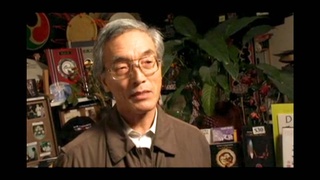Entrevistas
Takayo Fischer on Her First Time Expressing Outward Affection to Her Parents
I had never seen my mother and father touch one another or hug one another, or hold one another. I knew they slept in the same bed, but I never saw any outward affection. When my father would go away to work, maybe on some sugar beet farm or something for a couple months, my mother would bow and say goodbye, and when he came back, same thing.
And when I discovered how babies were born, or how sex – I was so shocked, because, you know, I had never been hugged or kissed, but here I’m watching my roommate, who was always calling everybody “sugar” or “darling” or “sweetheart,” hugging, kissing her parents, kissing her friends, and everything, and I had more affection during that one year of school, so that when I went home – I was too poor to go home during the holidays. I went home during the summer vacation, I worked all summer, and I thought, “When I go away to school next year, I’m going to hug my parents goodbye.” And I was such a nervous wreck, and then when I finally did it – and that’s when I decided that’s what I’ve got to do. I was taking a train, and they took me to the train station. At the last minute, I went up and I hugged my mother, hugged – it was like hugging a piece of icicle, or a – just so stunned, you know? And same thing with my father. But I decided that’s what I was going to do whenever I saw them – and naturally, once I went away to college, I never really lived at home anymore. And over the years, it got easier, and easier. And then I noticed that when they had grandchildren, they were very affectionate with the grandchildren, which I was glad to see that.
Data: November 8, 2018
Localização Geográfica: California, US
Entrevistado: June Berk
País: Watase Media Arts Center, Japanese American National Museum












